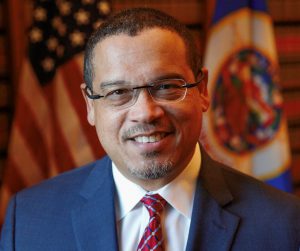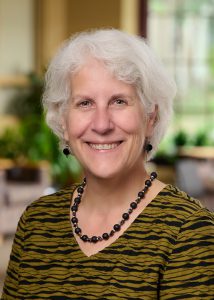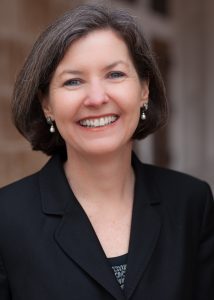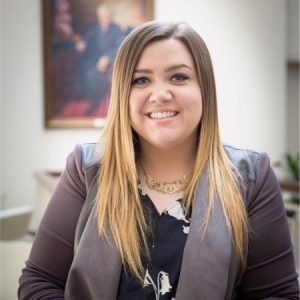
Minnesota Attorney General Keith Ellison
A new clinic at Mitchell Hamline is giving students the opportunity to work with a unit of the Minnesota Attorney General’s office that is investigating cases of people possibly being wrongfully convicted.
This fall is the first time the Wrongful Conviction and Sentencing Clinic is being offered. Eight students have enrolled for the inaugural course.
Their work is tied to a Conviction Review Unit that Attorney General Keith Ellison created in 2021. It’s an independent unit that will review cases that have “plausible allegations of actual innocence or manifest injustice.” Five of the 16 members of that panel are Mitchell Hamline alums.

Professor Kate Kruse
Students are working with Professor Kate Kruse in teams to investigate applications the Conviction Review Unit has carefully selected.
“Mitchell Hamline’s ethos is to train students to want to serve the public and make a difference,” said Kruse. “I can’t think of a more perfect example of that than giving students a chance to work on real-world cases that might lead to freeing someone who is in prison, serving time for a crime they did not commit.”
The Conviction Review Unit partnered with Mitchell Hamline after several Mitchell Hamline students worked with the unit as externs. The quality of the externs’ work and the students’ enthusiasm led the unit’s director, Carrie Sperling, to approach Professor Kruse.
“We’ve received an overwhelming number of applications for assistance, and we wanted to increase our capacity to investigate them,” said Sperling. “Partnering with Professor Kruse and her students seemed like a perfect solution.

Carrie Sperling, of the Minnesota Attorney General’s office
“The clinic will provide our office with high-quality legal work, and the students will get a unique educational opportunity.”
Kruse is also co-director of Mitchell Hamline’s entire clinical education program; she also teaches and writes in the areas of criminal law, criminal justice, and legal ethics.
Her career has included comparable work at several law schools, including at a clinical program at the University of Wisconsin Law School that provides legal assistance to incarcerated people. She also directed the UNLV Innocence Clinic in Nevada before joining Hamline Law as clinic director in 2012.

Mitchell Hamline student Zana Molina
The course also has a classroom component, where students will study how systemic issues lead to wrongful convictions.
One of the clinic’s inaugural students said she wanted to enroll the moment she heard about the new course because of her own hopes to work on innocence cases after graduation.
“I have always been interested in changing the justice system from within,” said third-year student Zana Molina. “And there seemed like no better opportunity to do that than through this important work with prosecutors in the attorney general’s office.
